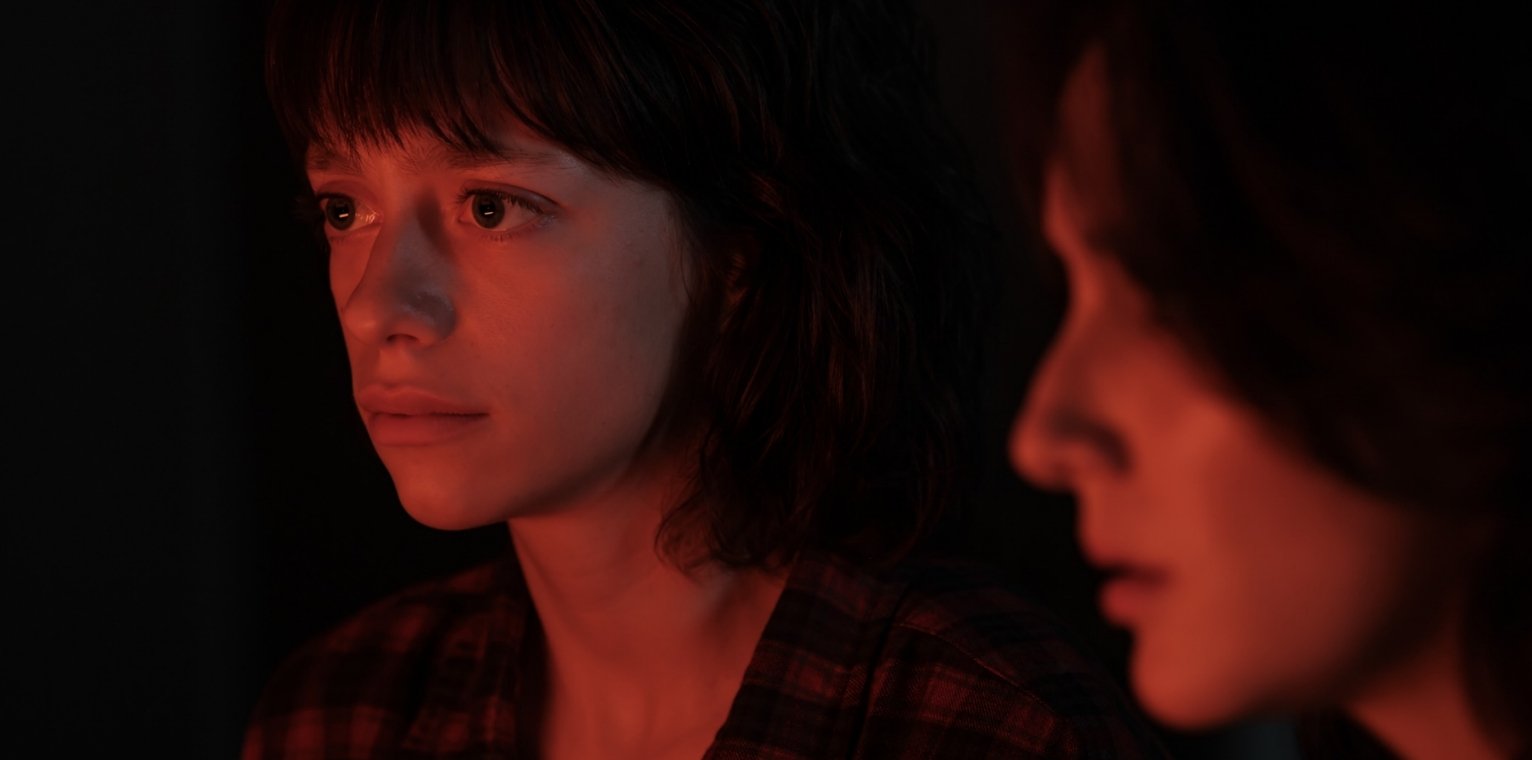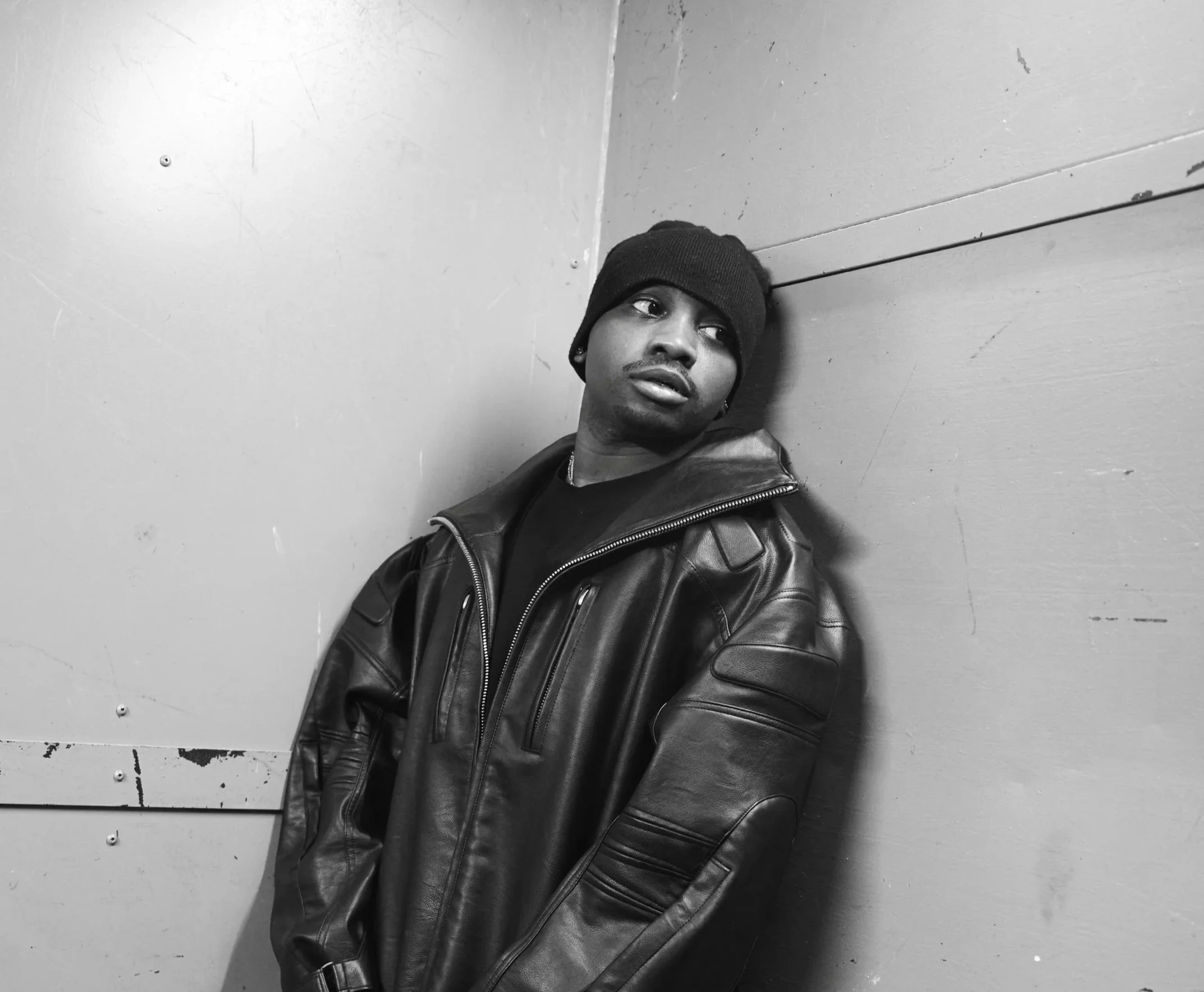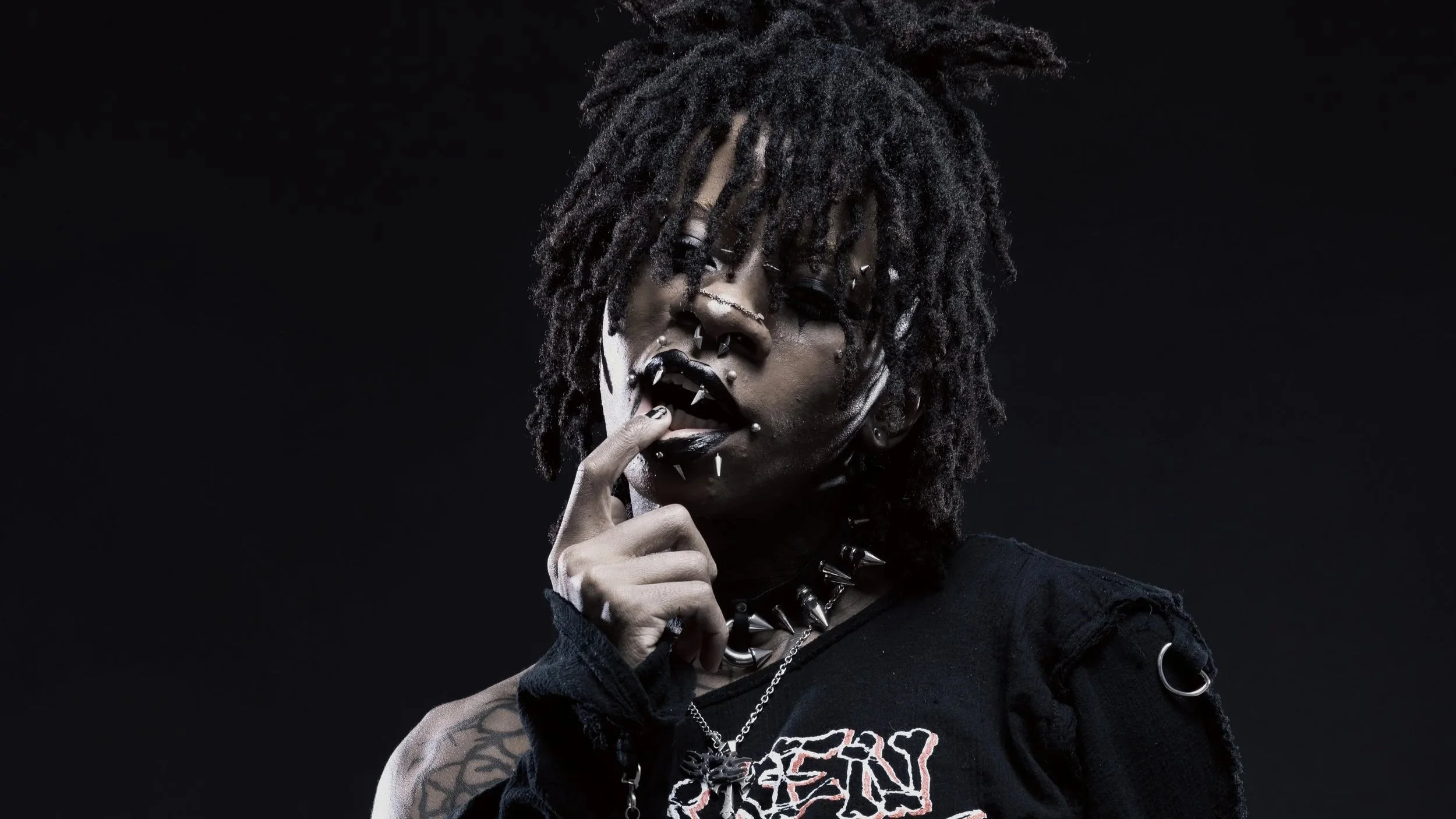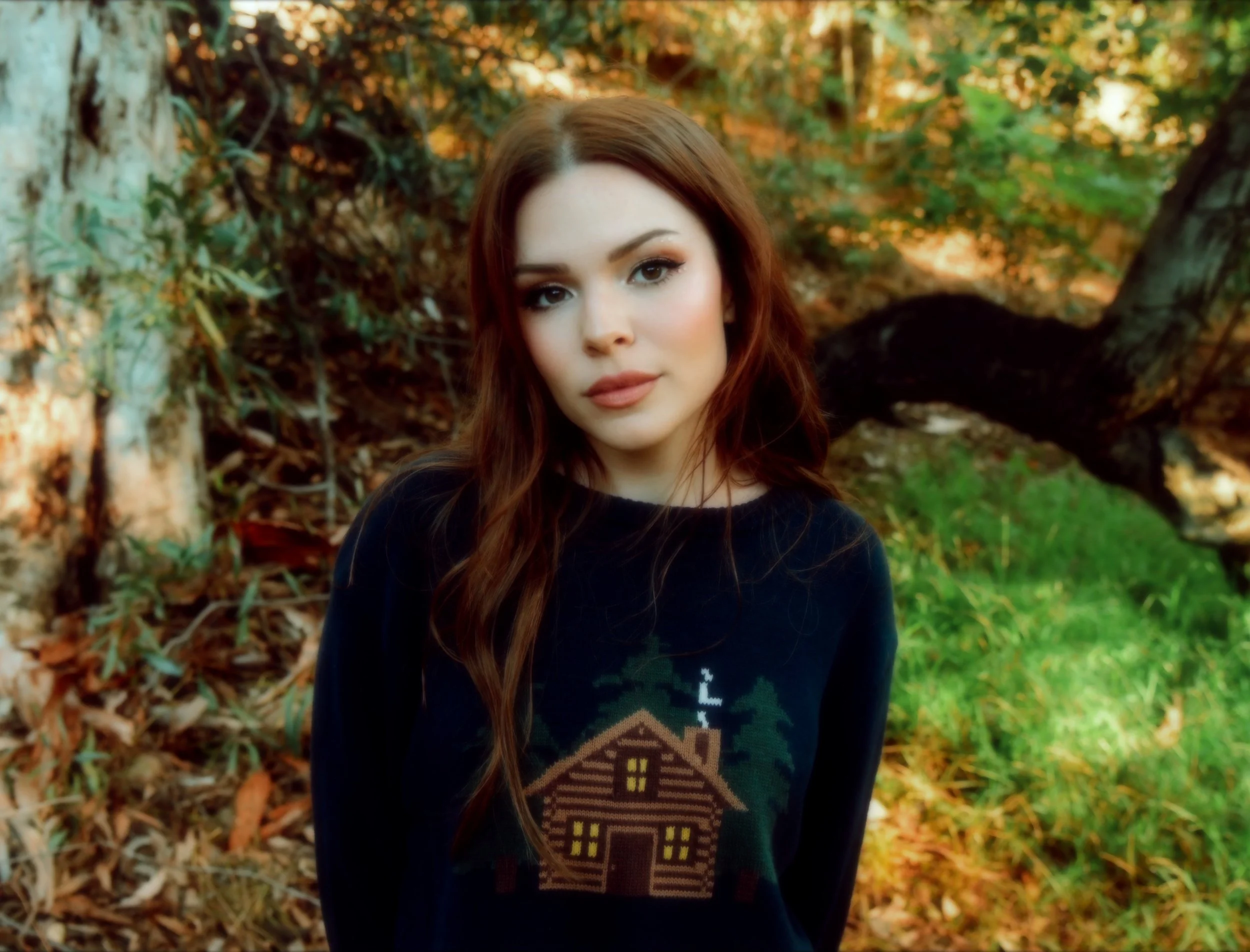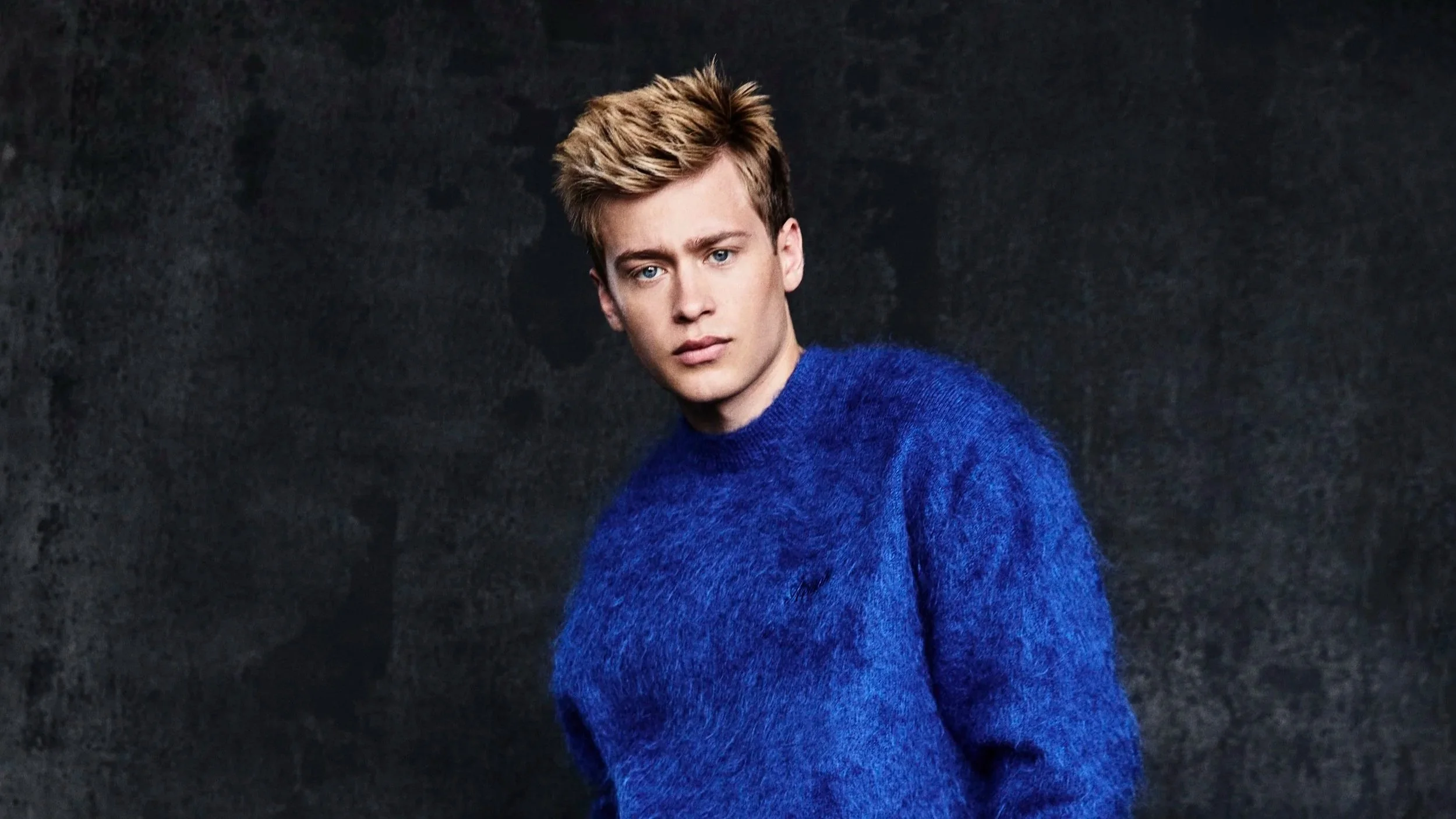Laurie Babin on Red Rooms, True Crime, and Societal Obsessions
In the chilling new thriller Red Rooms, Laurie Babin delivers a haunting and deeply moving performance as Clementine, a character whose intense obsession with true crime reflects the darker and more disturbing facets of human nature.
Set against the dramatic backdrop of a high-profile murder trial, the film compellingly explores the psychological toll that excessive fixation can exact on the human mind and spirit — where Babin's portrayal of Clementine emerges as a profoundly complex figure, as she navigates her own feelings of loneliness and alienation while simultaneously immersing herself in the disturbing narrative surrounding the accused killer.
With an engaging blend of unlikely empathy and unease, the film courageously challenges viewers to confront the unsettling reality of modern society's intricate relationship with violence and technology. And in our new interview with Babin, the actor is breaking down her thoughtful portrayal of Clementine, while unraveling the motivations and inner conflicts behind her character and examining the morbid allure of true crime that Red Rooms masterfully encapsulates.
In Red Rooms, your character forms a unique bond with Kelly-Anne. Could you share what drew you to this role and how you approached portraying this relationship?
Laurie Babin: My initial connection to this role was actually through the relationship between Clementine and Kelly-Anne, rather than the character of Clementine herself. After an initial audition on Zoom, [director] Pascal Plante invited [Juliette Gariépy] and I to a talk he was giving to film students on directing actors. He wanted to show them how he directs a scene, so he gave Juliette and me a scene between two women and we acted it a couple of times, taking cues from Pascal and the students. What we didn’t know was that Pascal also wanted to see the dynamic between Juliette and me, observing how we interacted and the chemistry we naturally brought to the roles.
So I believe that my dynamic with Juliette is precisely why I was chosen to play Clementine. We can all become so many facets of ourselves, but certain relationships inevitably draw out specific traits in us. The relationship between Kelly-Anne and my character was easy to tap into because it is, in a way, close to our dynamic in real life. Juliette is a lot warmer, a lot more colorful than Kelly-Anne, and I am calmer and less impulsive than Clementine, but she still exudes a kind of imposing confidence that fascinates me, much like Clementine is fascinated by Kelly-Anne. Our connection as actresses was a crucial and very real aspect of our characters’ relationship on-screen.
Considering that the film delves into themes of obsession and psychological struggle – how did you prepare to depict your character’s emotional journey throughout the trial?
Laurie Babin: I had to convince myself that the killer was innocent. My desperation had to be sincere, and so it was. I didn’t allow myself to focus on the latter part of the film until we were there, which was possible because we shot the film in a somewhat chronological order. I had to find empathy in myself, both for serial killer groupies and for Maxwell McCabe-Lokos’s character. To understand the phenomenon of serial killer groupies, I read [a book in French] called Réinventer l’amour: Comment le patriarcat sabote les relations hétérosexuelles, by Mona Chollet, which offers insights into why some women become infatuated with killers.
I also fell down the rabbit hole of some Reddit threads about “attractive” killers. Both were a game-changer in really understanding and empathizing rather than speculating or falling into caricature. This was the hardest part, so when the moment came to let it all crumble in the scene when my character realizes that Ludovic is indeed guilty, it was very freeing. My character’s emotions at that point came naturally: horror at the brutality, empathy for the victims, and profound guilt for having supported such a cruel person.
Given the intense subject matter, what was your method for balancing the darker elements of the story with the lighter moments shared between your character and Kelly-Anne?
Laurie Babin: For me, my character was blissfully unaware of how dark the atmosphere was until the second part of the film. So the lighter moments with Kelly-Anne were just that to me: light and fun. It was refreshing to play a character that is so oblivious to the cinematic universe she entered, but it was also very challenging, as I was the only one in this energy—I couldn’t really feed myself off of Juliette’s acting because her task was precisely not to give me anything.
Our characters are evolving in two different emotional dimensions, so we had to find energy, motivation, and tone internally. This being said, I think that those light moments together were fun for both of us, as well as the crew, amidst the film’s heavy subject matter.
The film touches on the impact of true crime obsession in modern society. How, if at all, do you feel your character reflects any broader commentary on this phenomenon?
Laurie Babin: I feel like the most interesting parallel between my character and modern society is the psychological trajectory of Clementine throughout the film. Her first instinct is to defend the presumed killer rather than focusing on victims: despite having no tangible proof that Ludovic is innocent, she leaves everything behind and makes her whole life about him. This goes accordingly with society’s general treatment of victims versus perpetrators: female victims are often reduced to anonymous, passive tragedies, while killers and perpetrators get all our attention, be it positive or negative. We take the murder and victims as something that has been done and cannot be changed, neglecting to notice larger patterns that operate daily.
As the film progresses, I think that Clementine not only realizes that Ludovic is, in fact, guilty, but also that she gave all she had to defend a man rather than to empathize with the victims. She was so enthralled with Ludovic that the horror of these aggressions and murders completely skipped past her. So to me, her realization that she has been defending a murderer takes a broader sense and suggests that society gives a lot of energy to perpetrators instead of trying to correct pervasive cycles of violence against girls and women. Aggressions that resolve in murders become fascinating headlines, making us forget that these murders are only the culmination of a dynamic that is deeply ingrained in our society, in which women don’t feel safe.
This project also seems to experiment with its use of suspense and tension. How do you think your character contributes to the overall mood of the film?
Laurie Babin: I think that the fact that my character is so unaware of the universe she just entered increases tension in that she makes the audience annoyed and stressed by her naiveté. I’m the character who hears a weird noise in the basement and blindly goes to check while the audience wants to scream ‘JUST LEAVE THE HOUSE!’ Also, Kelly-Anne’s character finds strength in her contrast with Clementine—as an audience, I think we need their dynamic to understand Kelly-Anne’s psychological progression.
Can you talk about any specific scenes that were challenging to film and what made them particularly difficult for you as an actor?
Laurie Babin: In a technical way, long sequence shots—which Pascal loves to do—were very challenging. There is one when Clementine and Kelly-Anne are getting lunch at the Courthouse. We had lots of things to do and to say, and many variations in the dialogue: I go from talking about the trial to revealing I was bullied in school to making fun of Kelly-Anne and smashing avocados, all the while ordering lunch, paying and finding a table. It was just a challenging choreography and the filming schedule was tight, so there was little room for mistakes.
Another scene that was challenging was the one where we finally watch the videos together in Kelly-Anne’s apartment. Obviously, we didn’t watch or hear anything, it was just red light on a screen. It was hard, both as an actor and as myself, to create my own nightmarish vision—much like the audience’s experience when having to imagine the horror rather than seeing it directly.
Looking back at your experience on Red Rooms, is there a moment, either on, or off camera, that you felt the most impacted by?
Laurie Babin: It’s hard to pinpoint a specific moment, and I think that what has impacted me to this day was finding Clementine’s character in myself. When Pascal first approached me to play Clementine, I never thought I could do it. The character seemed worlds apart from who I am and from any character I had played before. For the character to work, I had to delve deep into my own vulnerabilities and accept my own naiveté and quirkiness. Doing the internal work to find in what ways I could portray someone so dedicated to blind beliefs truly opened a path that still exists in me to this day.
Preparing for this role made me confront uncomfortable truths about our society’s fascination with violence—truths that linger beneath the surface. This experience fundamentally changed how I view true crime. It is no longer something I can consider mere entertainment. When you’re forced to confront your own attraction to the darker aspects of human nature, you realize that these are not just stories—they involve real people who have both committed and endured unimaginable suffering. That realization stays with you, reshaping how you perceive and interact with such narratives moving forward.


